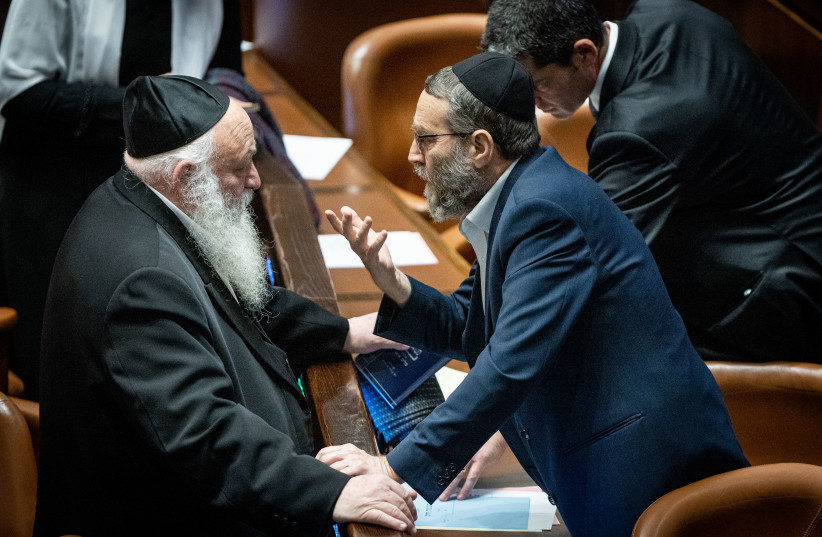A forum comprising several coalition party leaders was to meet on Sunday to discuss a haredi military draft bill after ultra-Orthodox party leaders told Prime Minister Benjamin Netanyahu last week that they insist on fulfilling this coalition promise before the budget passes on May 29, according to a Channel 12 report.
A new law under discussion would give the government the power to decide the annual allotment of haredi draftees into the IDF and will also lower the age for general exemption to enable haredi men to join the workforce earlier, according to the report.
In parallel, a law will be advanced that will improve the salaries and benefits of soldiers, the report added.
More specifically, the IDF and Defense Ministry agreed to an outline in which the exemption age will drop from 26 to 23, according to Ynet and Israel Hayom.
Israel Hayom added that the Finance Ministry was interested in adding another bill to the package that would shorten the length of service for non-combat soldiers to two years.

The National Service Law, which initially passed in 2014, sets allotments of haredi draftees to the IDF per year and sanctions yeshivot that do not meet these allotments.
However, the High Court of Justice deemed the bill unconstitutional in September 2017, since the exemption it gave was ruled to be too sweeping and thus violated the notion of equality. After the bill’s expiry date was repeatedly delayed, it is currently set to expire on July 31.
The coalition agreement between the Likud and United Torah Judaism stipulates that by the time the budget passes on May 29, the coalition will finish amending the National Service Law such that it is accepted by all of the coalition’s parties.
In addition, the parties agreed to pass a Basic Law: Torah Study, which will determine that the study of Torah is a fundamental value. UTJ believes that such a Basic Law would deter the High Court from intervening in whatever agreement is reached regarding the issue.
Threat by Goldknopf
UTJ chairman Yizhak Goldknopf even threatened in a Passover interview for Israel Hayom that his party would not support the budget if these bills do not pass.
A Basic Law: Torah Study has not been advanced and is unlikely to pass by May 29, as the Knesset will use most of its time to focus on the many different legislative components of the budget itself. However, an amendment to the National Service Law could pass on time – and this will likely suffice for UTJ to support the budget.
The issue also connects to the government’s controversial judicial reforms. UTJ insisted during the coalition negotiations and afterwards that the coalition passes an override clause, which would enable the coalition to re-legislate laws that the High Court strikes down.
The party reasoned that this would serve as another layer of defense for a future draft law, in case a Basic Law: Torah Study is not enough.
However, an override clause is unlikely to pass in the near future and insisting on passing one before the budget will likely jeopardize the negotiations currently being held at the President’s Residence over the reforms.
